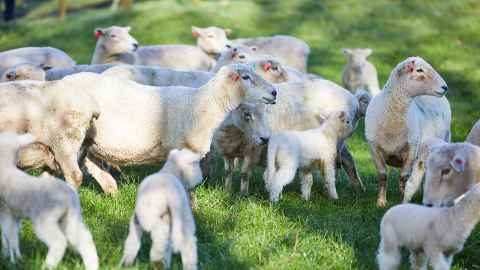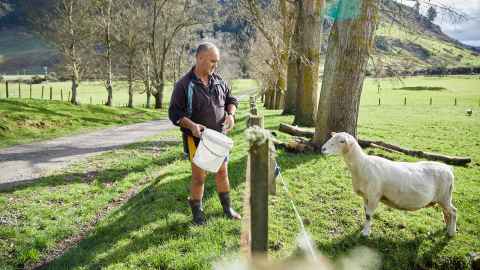Our animals
Lambs every two weeks
Maintaining sheep supply

One of the features that sets Ngapouri Research Farm apart as a research partner is the dependable supply of high-quality sheep to be used as subjects. Farm manager Gregg Pardoe executes an extended synchronised breeding programme, with lambs born every two weeks from mid-May to mid-November. This ensures continuity of animal supply for researchers.
The farm sources its breeding ewes from Landcorp Pāmu, New Zealand’s biggest supplier of Romney sheep, and the rams come from registered pedigree breeders. To synchronise the breeding programme, three rams are put in a pasture with 40 ewes for two days at a time. Ultrasound scanning is undertaken at 50 days and 70 days to determine how many lambs are present.
Help is always at hand

The lambs are free range in the pasture but because Gregg lives on the property, he is always available to check on lambs, hand feed them, and make sure they get post-operative care should they need it.
Any research work with animals is overseen by the Animal Welfare Officer (AWO) at the University of Auckland, and there is also a partnership between the farm and a local veterinary practice.
Although the farm is a major supplier of sheep for University of Auckland projects, Ngapouri breeds more lambs than are needed for current research demand. This means the farm can readily supply other research facilities. While sheep often produce twins, human babies most often arrive as singletons, and that is what researchers are looking to replicate. This means there are always more lambs available than there is demand.